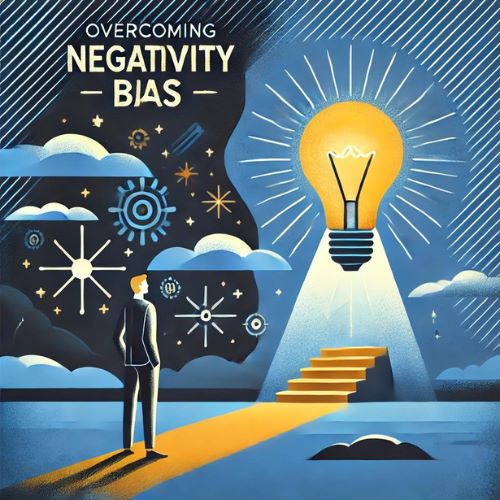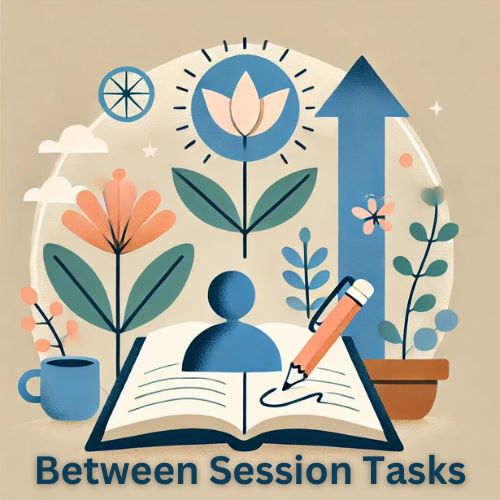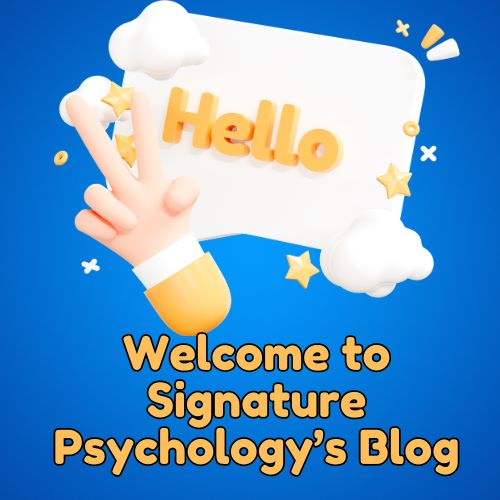Do you ever find yourself stuck thinking about unpleasant encounters or setbacks? When you read the news, do you gravitate towards the more depressing articles? If so, you’re experiencing what’s known as negativity bias.
What Is Negativity Bias?
Negativity bias refers to our tendency to focus more on negative events than positive ones. This can aCect how we feel, think, and act. Essentially, negative experiences have a greater impact on our psychological state than positive ones. We tend to remember insults more than compliments, react more strongly to negative stimuli, and dwell on unpleasant events. This bias shapes our perception and can lead to an overall more negative outlook on life if not addressed.
Where Does It Come From?
Negativity bias is thought to have evolved as an adaptive function to help our ancestors survive by being more attentive to threats. In a world where immediate dangers like predators were common, focusing on negative stimuli could mean the diCerence between life and death. Today, while this bias can still be helpful in certain situations— such as recognizing potential dangers—it often causes unnecessary stress and anxiety, as our modern threats are rarely life-threatening.
Examples of Negativity Bias
- Emotional Responses: Our brains respond more intensely to negative stimuli. For example, we remember a single criticism more vividly than multiple compliments. This heightened response to negativity can skew our perception, making us feel that negative experiences are more significant than they actually are.
- Media Consumption: Negative news tends to dominate media coverage because it grabs more attention, feeding our bias. This can create a skewed perception of the world, making it seem more dangerous or problematic than it truly is. Reflect on this: How does the media you consume influence your perception of the world?
- Rumination: We often dwell on negative events longer than positive ones, which can aCect our overall mood and mental health. This constant focus on the negative can lead to chronic stress and anxiety, impacting our daily lives and relationships. Reflect on this: How often do you find yourself ruminating on negative experiences compared to positive ones?
How to Overcome Negativity Bias
Self-Awareness and Challenging Negative Self-Talk: Recognize and challenge your negative thoughts. Replace them with more balanced, positive ones. For example, if you catch yourself thinking, “I always mess up,” challenge this by recalling times when you succeeded. Reflect on this: How can becoming more aware of your thoughts help you manage negativity bias?
- Mindfulness: Practice mindfulness techniques like meditation to become more aware of your thoughts and emotions, helping you focus on the present moment. Mindfulness helps you observe your thoughts without judgment, reducing the power of negative thinking. Reflect on this: How can mindfulness practices help you stay grounded and less influenced by negativity bias?
- Cognitive Restructuring: Reframe negative experiences to see them in a more positive light. This can reduce the impact of negativity bias by allowing you to find lessons or silver linings in adverse situations. For example, instead of viewing a setback as a failure, see it as an opportunity to learn and grow. Reflect on this: How can reframing your thoughts about negative experiences change your emotional response to them?
- Savor Positive Moments: Take time to fully enjoy and remember positive experiences. This helps counterbalance the tendency to focus on the negative. Engage fully in positive sensations, happy thoughts, and pleasant emotions. Reflect on this: How can taking time to savor positive moments enhance your overall well-being?
The Impact on Relationships and Work
Negativity bias can strain relationships by making us focus on others’ faults rather than their positive attributes. In personal relationships, this can lead to misunderstandings and conflicts, as we might dwell on minor issues instead of appreciating the positive aspects of our interactions. In the workplace, negativity bias can hinder decisionmaking and teamwork. For instance, focusing on potential negatives can make us riskaverse, stifling innovation and collaboration. Reflect on this: How might recognizing and addressing negativity bias improve your relationships and professional interactions?
Its Role in Anxiety
Being more sensitive to negative information can impact our neural circuitry. Negative bias can increase heart rates during fear perception and heighten startle responses, which are stress responses associated with anxiety. Studies have shown that those with a strong negativity bias are more likely to experience anxiety and depression. Reflect on this: How can understanding the role of negativity bias in anxiety help you manage your mental health more eCectively?
Overcoming Negativity Bias: Practical Exercises
Gratitude Journaling: Each day, write down three things you are grateful for. This practice helps shift your focus from negative to positive aspects of your life, reinforcing a more balanced perspective.
Cognitive restructuring: Negativity biases have been linked to numerous psychological disorders, such as depression and anxiety. When you catch yourself taking a negative view of situations, it may help to practice cognitive restructuring by reframing the event or experience. For example, instead of seeing a setback as a failure, view it as a learning opportunity. This technique can reduce the impact of negativity bias by helping you find positive aspects in adverse situations.
Acts of Kindness: Engage in acts of kindness. Helping others can create positive experiences that counterbalance negativity. Reflect on this: How does helping others make you feel, and how can it reduce the impact of negativity bias?
Understanding and addressing negativity bias is crucial for improving mental health and overall well-being. By becoming aware of this bias and actively working to counteract it, we can lead more balanced and fulfilling lives. How can these strategies be integrated into your daily routine to help manage negativity bias? This is the Signature Psychology Blog, where I, as a clinical psychologist, provide insights and strategies to help improve your mental health. If you have any questions or need professional support, please get in touch. Our team at Signature Psychology is here to assist you on your journey towards better mental health and well-being. Contact us today to learn more about our services.



